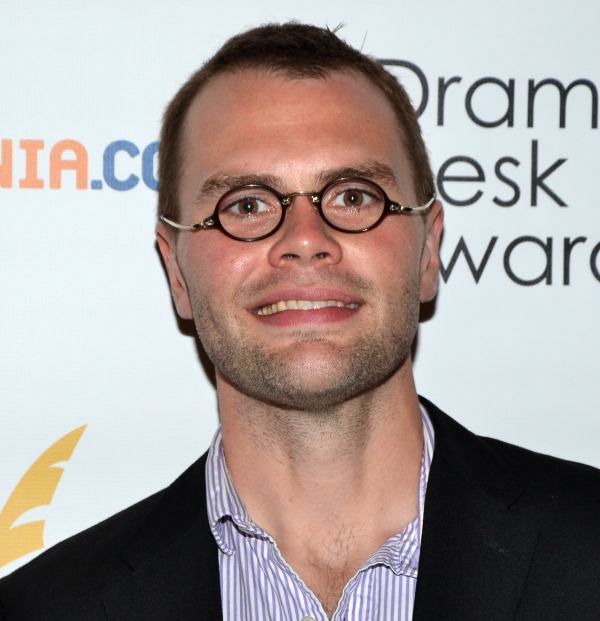Samuel D. Hunter Considers Gay Conversion Therapy in His Drama A Great Wilderness

(© David Gordon)
As a playwright, Samuel D. Hunter isn't afraid to tackle taboo subject matter. In his Drama Desk Award-winning The Whale, Hunter's protagonist is a 600-pound gay man desperately trying to reconnect with his estranged daughter before he dies. In his Obie-winning A Bright New Boise, he explores the bounds of art and faith within the break room of a Hobby Lobby craft store. Hunter's most recently produced play, A Great Wilderness (now running at Williamstown Theatre Festival), is centered on Walt, a soon-to-be-retired gay conversion therapist who discovers some uncomfortable realizations about his life's work when his final client disappears in the woods of Idaho. TheaterMania caught up with the young author to discuss his boundary-pushing plays and his interest in bringing Middle America to the stage.
A Great Wilderness is a play that centers on a gay conversion therapist and a client who has disappeared in the woods. Where did this idea come from?
There were a couple of entry points. In my play A Bright New Boise, there's a bit of backstory about a church that got shut down because of a scandal involving a boy being taken out in the forest on a vision-quest situation. That always stuck with me: the idea of somebody taking a young, defenseless person out in the forest for a spiritual experience. I remember having the thought of writing a play about a gay conversion therapist, but an unexpected version of that play, which centers on him [as opposed to a different character].
As a playwright, what were your goals for the piece?
There's a tendency where, when left-leaning people like myself are confronted with people like somebody who believes you can "pray the gay away," to react with disgust or dismissal, and to put it away in the "crazy" box. The project is to have a discussion, to not put the veil of caricature on a Christian fundamentalist. The question of the play is, who is this guy who based his entire life around the idea that you should fight biology? That's the story I'm interested in, rather than the story of an evil man being evil.
That sounds like what you did with The Whale, humanizing the idea of a person we only see on, say, Maury Povich.
The project of The Whale was, can I create a sense of empathy for this guy? This is one step further, which is, can I take a man whose beliefs are abhorrent and [who] dedicated his life to a destructive thing, and do the same thing with him? I nearly didn't write the play because I thought the waters were way too murky. This subject is so topical, and people bring such baggage into the theater with them. Hopefully, the play is a naked exploration of this guy. It's not a political play. It's not a topical play. It doesn't have a grand thesis about fundamentalism or gay conversion therapy. It's how this guy got to this point. It's a character study, like how The Whale is a character study and not a play about obesity.
What did you learn about the play after its initial production in Seattle earlier this year?
I've done a lot of rewriting and have a fresh pair of eyes…I think the first time, I was scared of putting religion into the play, even though these characters are fundamentalist Christians. Our lead actor, Jeffrey DeMunn, is amazing. The room has been so brilliant at really interrogating the play. It's allowed me to do a lot of filling out of the world.
What scared you about adding religion to the play?
I didn't want people to judge these characters from the outset…The work we've been doing here is illustrating how religion plays into these people's lives, and what brought them to this point. I grew up going to a fundamentalist Christian school, so [the belief system] is second nature to me. I get it. But that's just me. Most people don't have that relationship, and I need to let people in a little bit.
Switching gears, can you tell me a little bit about your next play, Pocatello, which is coming to Playwrights Horizons this fall?
I've always been interested in the idea of the paving-over of America, especially Middle America. It's so much of America and within so little of our media, if that makes sense. This play is about yearning for the divine in the most banal possible circumstances, someone searching for community and human connections. [The protagonist] has been living in this town, Pocatello, his entire life. His community is very depressed, and…he's trying to make it the one last bit of community left in the town. He's trying to save this restaurant and desperately searching for a moment of connection: "Can we sit down and eat pasta and talk?" It's a ten-character play, which is really exciting. It's by far the biggest play I've ever written. It's going to be so cool to explore that landscape on the mainstage at Playwrights Horizons.











